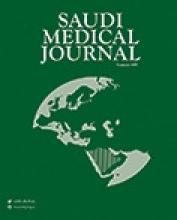12 JUNE 2015 ¦ GENEVA ¦ NEW YORK CITY - A WHO and World Bank Group report launched today shows that 400 million people do not have access to essential health services and 6% of people in low- and middle-income countries are tipped into or pushed further into extreme poverty because of health spending.
“This report is a wakeup call: It shows that we’re a long way from achieving universal health coverage. We must expand access to health and protect the poorest from health expenses that are causing them severe financial hardship,” says Dr Tim Evans, Senior Director of Health, Nutrition and Population at the World Bank Group.
Tracking universal health coverage: First global monitoring report
The report, Tracking Universal Health Coverage, is the first of its kind to measure health service coverage and financial protection to assess countries’ progress towards universal health coverage.
The report looked at global access to essential health services - including family planning, antenatal care, skilled birth attendance, child immunization, antiretroviral therapy, tuberculosis treatment, and access to clean water and sanitation - in 2013, and found that at least 400 million people lacked access to at least one of these services.
“The world’s most disadvantaged people are missing out on even the most basic services,” says Dr Marie-Paule Kieny, Assistant Director-General, Health Systems and Innovation, at the World Health Organization. “A commitment to equity is at the heart of universal health coverage. Health policies and programmes should focus on providing quality health services for the poorest people, women and children, people living in rural areas and those from minority groups”.
The report also found that, across 37 countries, 6% of the population was tipped or pushed further into extreme poverty ($1.25/day) because they had to pay for health services out of their own pockets. When the study factored in a poverty measure of $2/day, 17% of people in these countries were impoverished, or further impoverished, by health expenses.
“These high levels of impoverishment, which happen when poor people have to pay out of pocket for their own emergency health care, pose a major threat to the goal of eliminating extreme poverty,” says Dr Kaushik Basu, Senior Vice President and Chief Economist at the World Bank Group. “As we transition to a post-2015 development era, we must act on these findings, or the world’s poor risk being left behind.”
WHO and the World Bank Group recommend that countries pursuing universal health coverage should aim to achieve a minimum of 80% population coverage of essential health services, and that everyone everywhere should be protected from catastrophic and impoverishing health payments.
“As more countries make commitments to universal health coverage, one of the major challenges they face is how to track progress,” says Dr Ties Boerma, Director of the Department of Health Statistics and Information Systems at the World Health Organization. “The report shows that it is possible to quantify universal health coverage and track progress towards its key goals, both in terms of health services and financial protection coverage.”
This is the first in a series of annual reports that WHO and the World Bank Group will produce on tracking progress towards UHC across countries.
“As the saying goes, ‘what gets measured, gets done.’ With countries around the world taking steps to provide universal health coverage, the ability to identify gaps and effectively measure progress will add critical momentum to this global movement,” says Michael Myers, Managing Director at The Rockefeller Foundation. “This an important tool for countries to achieve universal health coverage and build more resilient health systems.”
Available from: http://www.who.int/mediacentre/news/releases/2015/uhc-report/en/
Authorship Entitlement
Excerpts from the Uniform Requirements for Manuscripts Submitted to Biomedical Journals updated November 2003. Available from www.icmje.org
The international Committee of Medical Journal Editors has recommended the following criteria for authorship; these criteria are still appropriate for those journals that distinguish authors from other contributors.
Authorship credit should be based on 1) substantial contributions to conception and design, or acquisition of data, or analysis and interpretation of data; 2) intellectual content; and 3) final approval of the version to be published. Authors should meet conditions 1, 2, and 3.
Acquisition of funding, collection of data, or general supervision of the research group, alone, does not justify authorship.
Author should be prepared to explain the order in which authors are listed.
- Copyright: © Saudi Medical Journal
This is an Open Access journal and articles published are distributed under the terms of the Creative Commons Attribution-NonCommercial License (CC BY-NC). Readers may copy, distribute, and display the work for non-commercial purposes with the proper citation of the original work.






